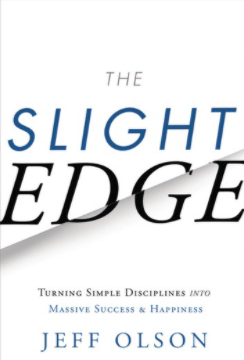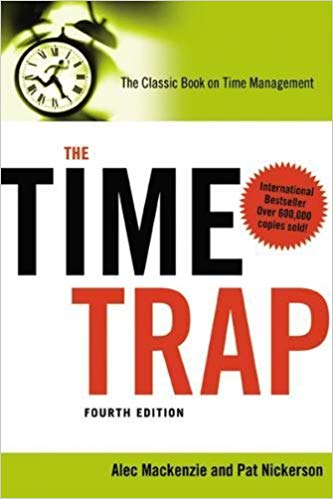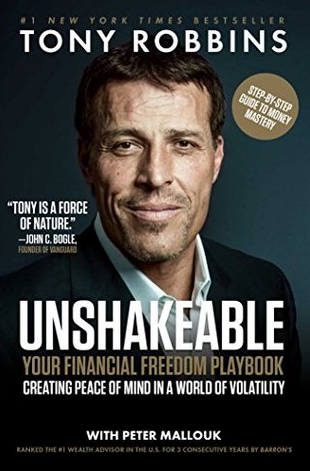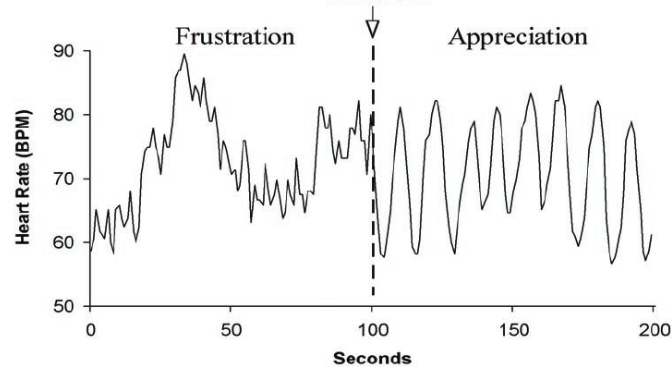The Plastic Mind
Tanya Cross
on
October 7, 2021
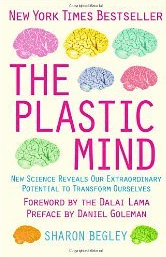
The Plastic Mind
We are not stuck with the brain we are born with. We have the potential to increase our intelligence, knowledge or learn new skills, even after traumatic events. No one has any idea on how much plasticity the brain has, some school of thought believe we are only utilizing 10% of our brains capacity. Take a moment to think of a savant who has a remarkable ability to understand and recall information that we have yet to learn to tap into.
It is only in the last 20 years that neuroscientist discovered that the adult brain is not fixed, but indeed, to the contrary, retains the power of neuroplasticity. The brain is constantly undergoing rewiring and changes. For example, violinists are forging new connections each time they play and can play months, even years later. The adult brain retains much of its plasticity of the developing brain, including the power to repair damaged regions, to grow new neurons, to rezone regions that performs one task and have them assume a new task, to change the circulatory that weaves neurons into the networks that allows us to remember, feel, suffer, think, imagine, and dream.
The wiring in our brains is not static, nor fixed. It’s subject to continual change – adaptable. Yes, the brain can change, and that means that we can change. It is not easy. As we will see, neuroplasticity is impossible without the attention and mental effort. In order for you to change, you must first want to change. But if there is will, the potential seems immense. Depression and other mental illnesses can be treated by enlisting the mind to change the brain, not by flooding it with problematic drugs. A brain affected with dyslexia can change into one that reads fluently, merely by repeatedly changing the sensory input it receives. A brain with no special ability in sports or music or dance might be induced to undergo a radical rezoning, devoting more of its cortical real estate to the circulatory that supports these skills.
Edward Taub found inspiration from the experiments with Silver Spring monkeys as he was driven by one hope: that what he learned would help the people recover from stroke and other brain lesions. Every year, some 750,000 Americans suffer from a stroke. A clot in a blood vessel, or a ruptured blood vessel, shuts off blood flow to part of the brain. Because blood carries oxygen that brain cells need to survive, cells in that region are at risk of dying. Cells, however, can hold their breath longer than people can, so there is window of about eight hours in which doctors can minimize the damage by administering the drug TPA (tissue plasminogen activator) or even by cooling the brain, which reduces oxygen demands, much as a person can survive longer without oxygen in a frigid lake than in a warm one. But many stroke victims fail to get medical help quick enough, often because they do not even realize that have suffered a stroke. As a result, stroke is the country’s leading cause of disability, with roughly one third of those who suffer a stroke becoming permanently and seriously disabled – unable to talk, to use their arms or to perform daily tasks.
Taub argued that his work pointed the way towards testing whether learning not to use an affected arm account for much of a stroke patient’s disability. He then outlines a possible way around the maladaptive learning. This therapy he had in mind would exploit the discovery that Silver Spring monkeys experiment of training monkey who had one job could be trained to perform another. From this, Taub inferred that people who had a stroke had knocked out one region of the brain could undergo training that would coax a different region of the brain to assume the function of the damaged brain.
The therapy came to be known as constraint induced movement therapy. By putting a stroke patient’s good arm in a sling and her good hand in a oven mitt so she could not use either, Taub reasoned, she would have no choice but to use her ‘useless’ arm. If she wanted to hold onto something or feed herself to get dressed or do the laborious rehabilitation exercises though which he put patients. It was an uphill battle from the start. The rehab community was united in opposition to the idea that therapy after a stroke could reverse the neurological effects of the stroke. The official position of the American Stroke association for chronic stroke only increase a patient’s muscular strength and confidence, but does nothing to address brain damage.
In 1987, Taub joined some other open minded colleagues and began working with four stroke patients who were in the top quartile of stroke survivors in their ability to move their affected arm. Taub had the patients wear a sling on their good arm for 90 percent of their waking hours for fourteen days straight. On ten of those days – two five day weeks, they spend six hours at the University where Taub worked undergoing intensive training. They threw balls. They played dominos. They held cards. They stacked up sandwiches and laboriously delivered lunch to their mouths. They tried again and again to extend their arm far enough to pick up a peg, to hold it tightly enough to keep from losing their grip on it, to pull their arm back towards the hold in the pegboards, and to slip it into the right hole. It is painful to watch you hold your breath as when a gymnast attends a particular tricky move. The reward for successfully inserting the peg, of course, was getting to do it again and again and again. If the patient could not reach the peg at first, the therapist too her by the hand, guiding her arm to the peg, then back to the hole, all the while offering encouragement.
After just ten days of therapy, Taub found, patients regain significant use of an arm that would always be rendered uselessly. They could put on a sweater, unscrew a cap on a jar, and pick up a bean on a spoon and lift it to their mouth. They could perform almost twice as many of the routine daily activities as a patient who, serving as controls, did not receive the therapy. And these were not patients whose stroke was so recent that they might have regained movement spontaneously, as many do. No, these patients suffered their stroke more than a year before beginning therapy and so long past the period when, rehab wisdom held, either spontaneous or therapy-aided recovery takes place. Two years after treatment ended, Taub’s patients were still brushing their teeth, combing their hair, eating with a fork and spoon and picking up a glass and drinking from it.
This showed his clear hunch that the old brain, even a damaged brain, retains some of its early neuroplasticity – enough, at least, to rezone the motor cortex so that the functions of a damaged region can be assumed by a healthy region.
Further studies over the past 14 years have toppled the dogma that when a brain region is damaged by a stroke, the function it used to perform is forever lost. Instead the brain is able to recruit healthy, unusually nearby, neurons to perform the function of the damaged ones.
It is important to recognized what neuroplasticity is not; a glam name for the cellular changes that underlie the formation of memory and hence learning. New synapse, connection between one neuron and another, are the physical manifestations of memories. In this sense, the brain undergoes continuous physical change. But neuroplasticity goes beyond that. It produces wholesale changes in the job functions of particular areas of the brain. Cortical real estate that used to serve one purpose is reassigned and begins to do another. The brain remerges itself throughout life, in response to outside stimuli – to its environment and to it’s experience. As Taub’s violin players and stroke patients, so dramatically, many brain systems retain well into adulthood their ability to respond to altered sensory inputs and reorganize themselves accordingly. “Plasticity is an intrinsic property of the human brain.” The potential for the brain to reprogram itself might be much greater than has previously been assumed.
As he sees it, neuroplasticity is evolutions way of letting the brain break the bonds of its own genome, escaping the destiny that usually cases one region to process visual input and another to process auditory input, one stretch of the somatosensory cortex to process feeling from the right index finger and another to process input from the thumb. Genes set up all that. But genes can’t know what demands, challenges, losses and blows the brain will encounter, and more than parents can’t know what slings and arrows the child they send out into the world will meet. Rather than set strict rules of behavior, wise parents teach their children to respond to the challenges they meet. So, too, has nature equipped the human brain, endowing it with the flexibility to adapt to the environment it encounters, the experiences it has, the damage it suffers, the demands the owners makes of it. The brain is neither immutable nor static but instead continuously remodeled by the lives we lead.
The environment and our experiences change our brain, so who you are as a person changes by virtue of the environment you live in and the experiences you have (p87). But there is a catch. Theses changes only occur when the person is paying attention to the input that causes them. As we shall see, if I run the finger of your left hand over the strings of a violin while you were sleeping, and did it again and again, the region of the somatosensory cortex that registers sensation from your fingers would not expand. This was one hint, seen even in the early monkey experiments, that mental activity affects, and perhaps even enables, neuroplasticity. That is, neuroplasticity occurs only when the mind is in a particular mental state, one marked by attention and focus.
The Dalai Lama said the most powerful influences of the mind come from within our own minds. The book concludes to state “the conscious act of thinking about one’s thoughts in a different way changes the very brain circuit that does that thinking, as studies of how therapy changes that brains of the people. Such willfully induced brain change requires focus, training, effort, but a growing number of studies using neuroimaging show how real those changes are. They come from within. As the discoveries of neuroplasticity, and this self directed neuroplasticity, trickles down to clinics, and schools and plain old living room, that ability to willfully change the brain will become a central part of our lives – and our understanding of what it means to be human.
With gratitude,

